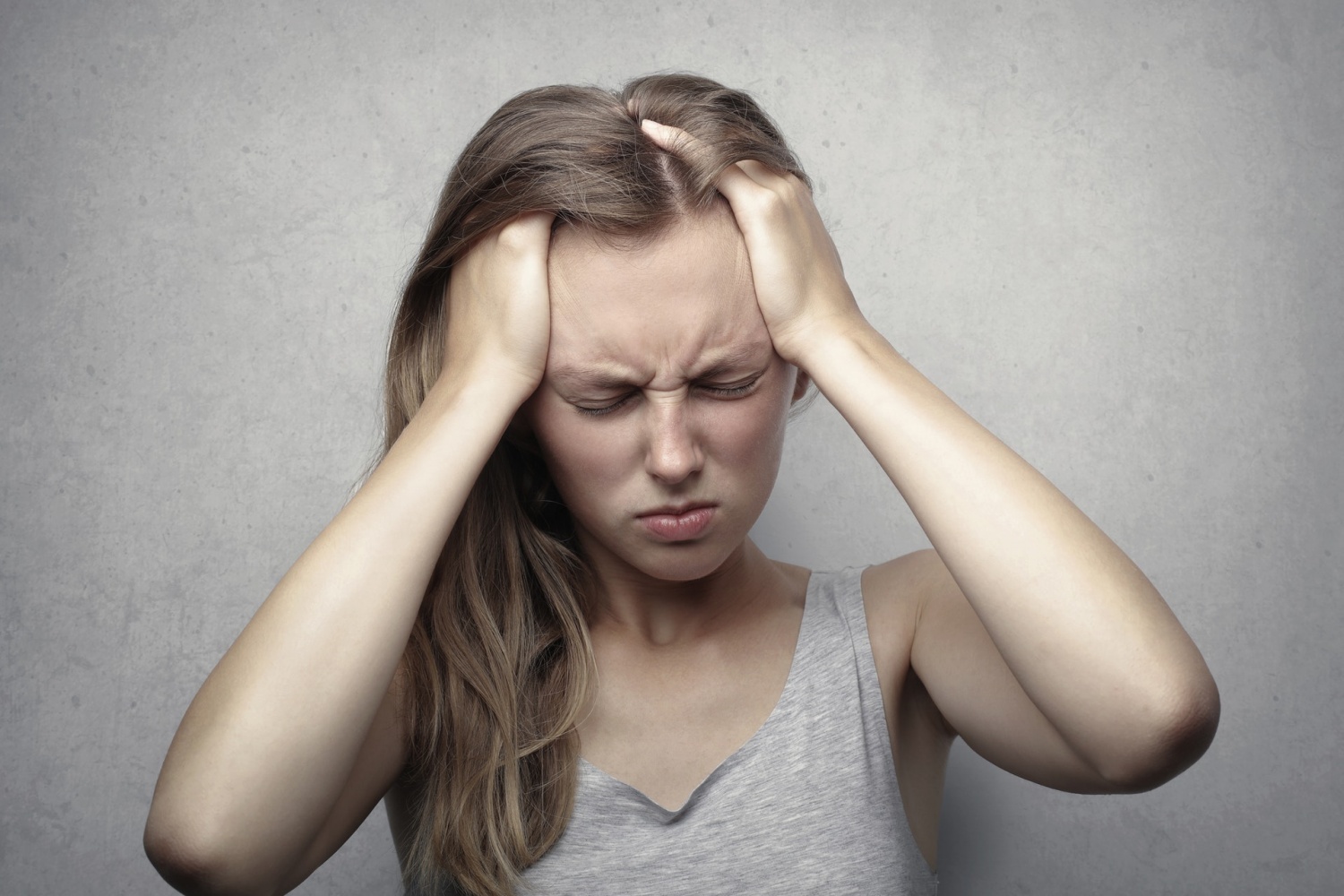 Credit : Andrea Piacquadio / Pexels
Credit : Andrea Piacquadio / PexelsPsychodermatology is a relatively new field of study that studies the overlap of psychiatry and dermatology. We've all been told that stress and anxiety can cause breakouts. It turns out that even grief, sadness and anger may affect our skin, too. Double board-certified dermatologist and psychiatrist Dr. Amy Wechsler tells Hello Giggles that she thinks there may be thousands of ways that the mind can interact with skin and it can be both negative and positive. For example, when you're highly embarrassed, your cheeks turn red. That's one simple way of showing how our feelings can directly affect our skin.
What links the mind and skin?
Dr. Wechsler explains that the mind and skin are connected though multiple pathways in our endocrine, nervous and vascular systems and they have been connected even before we're born. According to board-certified dermatologist and founder of Spring Street Dermatology, Dr. Sapna Palep, psychological factors are considered in assessing and managing skin conditions in more than one-third of dermatology patients and research can back that up. As Hello Giggle writes, various studies have estimated that the prevalence of psychological factors that affect skin conditions can be anywhere from 25 to 33 percent. The Dermatology Times state that dermatologic diseases like acne, dermatitis and psoriasis that are exacerbated by emotional stressors are also called psychophysiological disorders.
How does stress affect the skin?
As Dr. Wechsler says, stress-induced breakouts are very common and is something that everyone experiences at one time or another. She recalls that in studies involving college students, breakouts occur, and in higher numbers, when students have their final exams. Since stress can cause inflammation on the skin, skin conditions like acne, eczema, hives, and psoriasis often get triggered. There is also such a thing as stress aging, she adds. Dr. Palep also says that alopecia or hair loss, prurigo (intense itching) and rosacea can also result from too much stress.
Inhalable Beauty Treatments
In psychodermatology, inhalable treatments like aromatherapy are often discussed. As the theory goes, vitamin and mineral-rich ingredients can be inhaled to calm down our nervous system. A healthy mental state will then result to better skin. The Oprah Magazine recommends these aromatherapy essentials oils to ease stress and anxiety: lavender, bergamot, mandarin, sandalwood, chamomile, ylang ylang, sage and frankincense. There are also companies that are developing inhalable supplements, but Dr. Wechsler and Dr. Palep are skeptical about this and say that this beauty trend is still being studied for its pros and cons, especially for safety and effectivity.
How to apply psychodermatology at home
Psychodermatology is not far off from stress management. Amidst a worldwide pandemic, stress levels are sky-high and if all the skincare products you've been trying are not working out for you, calm your mind with meditation, journaling, and regular exercise. You can also try yoga, baking, popping bubble wrap, solving puzzles, knitting, and dancing like no one's watching.
Related article: Dermatologists Agree That Skin Burnout Is Real and This Is How To Deal With It

